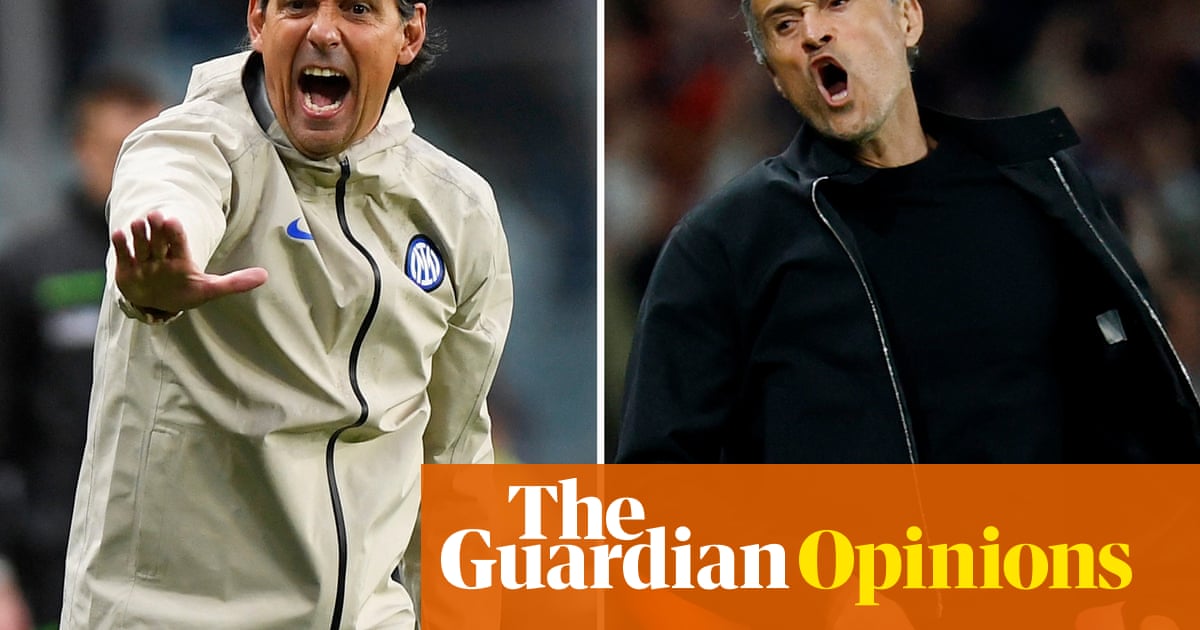TheChampions Leagueshould be varied, otherwise it’s no fun. Recently, however, two clubs have dominated the competition. There hasn’t been a final without Real Madrid or Manchester City for four years, and there hasn’t been another winner for three. And since 2014, Spain or England have always won. The only exception was Bayern Munich, but they benefited from the circumstances of the pandemic in 2020.
On Saturday there will be a different winner in Munich, one from a different country. Paris St-Germain take on Inter. France against Italy in the final, that rarely happens. Serie A, once the best league in the world, has not won the title for 15 years and Ligue 1 last had a winner in 1993. In the inaugural season of the Champions League Marseille defeated Milan. Since then there have only been two finals with a French club, Monaco losing in 2004 and PSG in 2020.
PSG have changed fundamentally. Not long ago, the club was able to afford the who’s who of world football’s attack. That guaranteed maximum attention. The Qatari owners have apparently satisfied their vanity enough; they are now known throughout the world. Now they are letting the expert Luis Enrique do his thing.
The coach is relying on young French footballers with outstanding skills and teaching them to play as a team. Suddenly, the 11 players are playing together in an organised manner, defending with discipline and combining excellently. It’s beautiful to watch.
Ousmane Dembélé has undergone the biggest transformation. The individualist is now playing for the team. Moved from the wing to the centre, he is constantly developing the attacking play as a goalscorer and playmaker. Khvicha Kvaratskhelia, who joined the team in the winter, has been a big help as well. The Georgian winger reminds me of my former teammate Franck Ribéry because of his fighting spirit.
PSG already had more money than their domestic rivals. Now they have added principles that define the team sport of football: coaching, targeted transfer policy and an idea. The club will continue to expand their national monopoly, which they have recently begun to exploit. This gives them first access to talent from France, which is known to be a huge reservoir. This privileged situation is similar to that of Bayern, whose identity has for decades been based on being able to sign the best players in the Bundesliga without hindrance.
Another thing PSG and Bayern have in common is that they are largely spared from competition in their national leagues and thus from the attritional battle seen in the Premier League. Even Manchester City had a close call this time with Pep Guardiola’s team having to give their all against Southampton and Fulham to finish third. It is practically unthinkable that PSG will ever miss out on the Champions League. The last time that happened to Bayern Munich was in 2007, and that was an exception.
Now to Inter. I’m delighted that the team has reached the final for the second time in quick succession. In 2023 a kind draw was on their side but this time the team knocked out big names such as Bayern and Barcelona. They achieved this because they take everything Italian football stands for to heart. Their tactical level is good, they play as a unit, they are masters the art of defending and they play with infectious passion. Everyone gets behind the ball, they control the game, and launch counterattacks – that’s the recipe for success for this mature team.
That’s also team sport. It’s how the Inter stronghold makes up for many of its shortcomings, such as the fact that it lacks the world’s best footballers. The players are getting everything out of themselves because they sense that this could be their last chance. Inter remind me of Chelsea, who took advantage of that against us at Bayern. Inter also remind me of Inter in 2010, when they beat us in the final.
So City and Real will have to watch from the sidelines this time. Guardiola’s perfectly organised machine lost its inspiration in its ninth year. Everything has its time. I’m curious to see if he can rebuild it. And I didn’t like Real in the last victorious final because their opponents had five clear chances to score. You could see that it hurt Carlo Ancelotti. He, who has won the Champions League five times, more than anyone else, is now leaving Europe and going to Brazil.
Sign up toFootball Daily
Kick off your evenings with the Guardian's take on the world of football
after newsletter promotion
Is the current season an exception or does it bring something new that will last? I could imagine PSG’s success continuing. The club failed several times with the old model – Messi, Neymar, Mbappé. Now it’s possible that they will win the title in their first year after the cultural change. However, Inter’s style will not make them serial winners; they are a long way from the Italian dominance of the 1990s.
But it’s good to know that at least all five major leagues have a chance of winning the title, and not just two. This means that the Champions League meets the minimum requirement. Of course it would be better if the rest of Europe could also get more involved in the latter stages.
Despite all the moves, one thing has not changed. On Saturday there will be two men on the sidelines who know their craft. The clear philosophies of their home countries have made Simone Inzaghi and Luis Enrique giants of the coaching world. Like Ancelotti and Guardiola, they come from Italy and Spain.
Philipp Lahm’s column was produced in partnership with Oliver Fritsch atZeit Online, the German online magazine.
